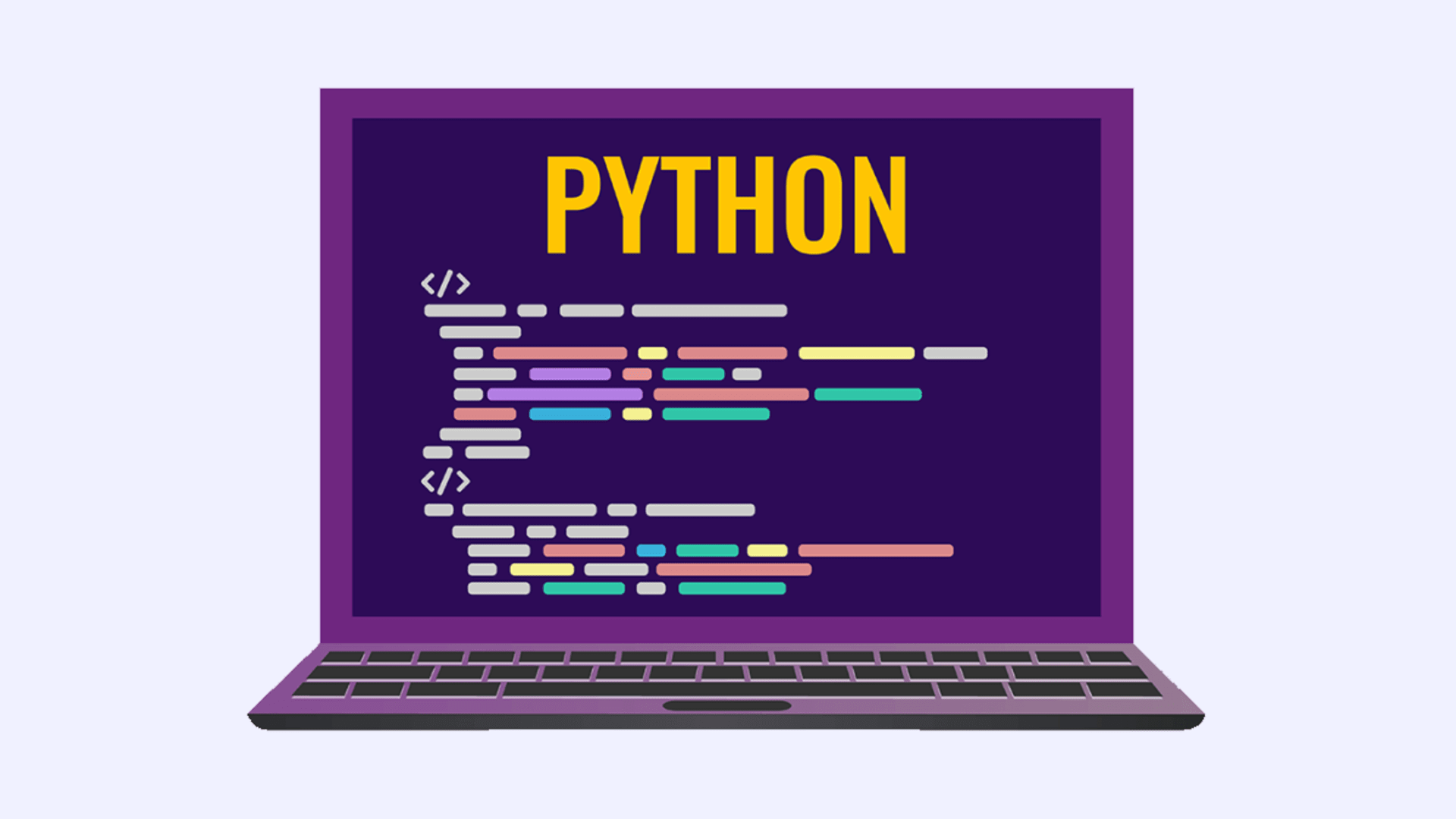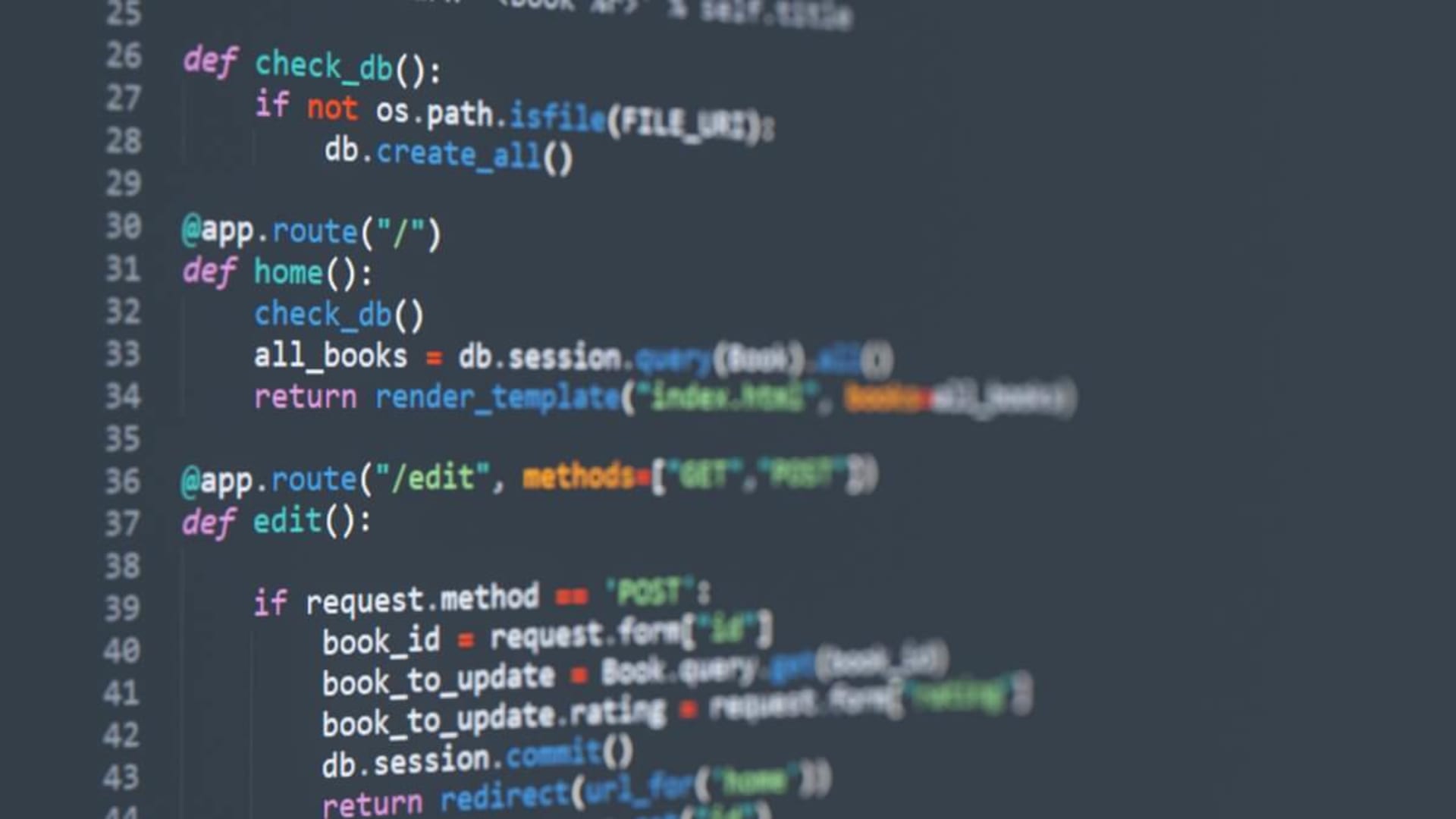- Home
- Technologies
- Python
- Hire Python Developers
Hire Python Developers
Hire vetted Python talent.
Our top 1% of tech talent has already undergone a rigorous vetting process. Get bilingual, nearshore Python developers on your team within 2 weeks.
500+ companies rely on our top 1% tech talent.
No time to find the top talent yourself? Skip the hassle of recruitment.




The Ultimate Guide for Hiring Python Developers
Given the rise of AI, machine learning, and data science, it's no surprise that many businesses are eager to find a qualified Python developer. After all, Python is considered a top language for crafting solutions in these fields. But how do you find the best talent? We know how difficult it can be to pinpoint the experts. Since 2009, we've made it our business to identify and hire only the top 1% of tech talent.
Based on our extensive experience recruiting the best senior Python developers, we created this guide to support you in the hiring process. It includes key considerations when you hire Python developers, technical and soft skills to look for, interview questions, and FAQs about the process of recruiting Python experts. Our goal is to inform you about the process and help you confidently hire the most qualified Python developer for your team.
Before You Start Hiring
Project or Team Requirements
Take stock of the project or projects you need to complete. Perhaps you need to hire Python developers for a new app or program, or maybe you're looking for a longer-term engagement. Considering the requirements will allow you to pinpoint the competencies and experience the Python programmers should have.
Python Expertise
A qualified developer should have expertise not only in Python itself but also in the Python ecosystem, including frameworks like Django, Flask, and SciPy. These tools will vary depending on the nature of your project. For example, there are different frameworks that support web vs. data science Python development. The most talented Python developers will have expertise in different types of relevant frameworks.
Experience in Your Preferred Approach
Your company's software development approach, such as agile or waterfall, dictates how you collaborate and complete projects. If you follow an agile methodology, then your Python developer should have experience working with this approach, too. This allows for a more collaborative, streamlined development process.
Culture Fit
While technical skills are essential, a Python developer should also share your communication and collaboration style. This will lead to a better working relationship, teamwork, and a more harmonious environment for all your team members. This is especially true when you're working with remote Python developers because face-to-face communication isn't as possible. You must be able to facilitate communication with all team members, no matter where they're located.
Collaborative Mindset
Collaboration is important in Python development. It's not just about building the software itself; the process also involves quality assurance testing, project management, UX design, and more. You need a software developer who is not only technically proficient but also willing and able to collaborate with other experts, team members, and stakeholders to execute projects.
22 Skills Every Python Developer Should Have
The Python programming language is steadily gaining popularity. It's used for a wide range of purposes, including web development, data science, artificial intelligence and machine learning, scientific computing, and much more.
Python developer responsibilities are complex and varied, so it is critical to find an expert with the right technical and soft skills to tackle versatile requirements. This will lead to faster and higher-quality project turnaround and better progress as a team.
We've identified 22 important skills Python developers should have:
Technical Skills to Look for in Your Ideal Python Developer
1. Mastery of Python and Relevant Frameworks
Python developers should have expertise in the Python ecosystem. That includes frameworks like Django, Flask, and Pyramid for web development and Pandas, NumPy, or SciPy for data analysis. Because the language is used to render server-side logic, Python web developers should understand server-side templating languages, such as Jinga2.
2. Database Knowledge
Python is widely used in data science and data storage solutions. It is important for developers to understand database management, including both SQL and NoSQL databases.
3. Version Control Systems
Version control systems like Git help Python developers manage and track changes to code over time. This also allows multiple team members to work on projects simultaneously.
4. Unit Testing and Debugging
Developers need to be able to write and execute test cases with frameworks like PyTest. By running these tests during development, they can effectively debug Python applications and ensure code consistency, accuracy, and reliability.
5. Object Relational Mapper (ORM) Knowledge
ORMs allow developers to convert data between incompatible type systems. Knowledge of ORMs like SQLAlchemy and Django ORM is important for Python programming, particularly in web development and database interactions.
6. Knowledge of AI, Machine Learning, and Data Modeling
Python is a leading language in the AI/ML field. Developers should be familiar with machine learning algorithms and libraries and frameworks used to build AI/ML models, such as TensorFlow, Keras, PyTorch, and Scikit-learn. They should also understand machine learning algorithms and data modeling techniques.
7. Front-end Technologies
For full-stack developer roles that involve Python, developers should have a basic knowledge of front-end programming languages and technologies like HTML, CSS, and JavaScript.
8. RESTful API Development
RESTful API development is important in modern web development. APIs facilitate communication between apps and integrations with external services.
9. Understanding of Security Best Practices
Security is a critical part of software development and an essential consideration at every stage of the software development lifecycle. Python developers should adhere to secure coding practices and employ mechanisms including encryption, authentication, and authorization.
10. Code Profiling and Optimization
Code profiling, optimization, and memory management are important for improving the performance and efficiency of apps. Through these practices, Python developers can identify the parts of their code that are introducing performance bottlenecks. This is especially important for large and complex applications.
11. Scripting and Automation
Python is often used to write scripts for automating repetitive tasks. These tasks can include data processing, web scraping, system administration, and file manipulations. Automation helps save time and effort and reduces the chances of human error.
12. Familiarity with DevOps and Deployment Tools
DevOps practices, combining development (dev) and operations (ops), help shorten the development lifecycle while promoting the continuous delivery of quality software. Python developers should have familiarity with DevOps practices and deployment tools like Docker and Kubernetes.
13. Cloud Platforms Experience
Cloud platforms are often used for deploying Python applications. Because of this, developers should have experience working with services like AWS, Azure, and Google Cloud Platform.
14. Web Scraping Skills
Python is a popular language for web scraping, the process of extracting data from websites. Python developers use libraries such as Beautiful Soup and Scrapy for web scraping in data collection and data analysis tasks.
15. Knowledge of Additional Programming Languages
It's useful for a Python programmer to know other languages, such as JavaScript for full-stack development, Java for mobile development, and C++ or C for optimizing performance and building system-level applications.
16. Asynchronous Programming
Asynchronous programming paradigms are important for developing high-performance applications. Developers can facilitate the approach using libraries like asyncio.
17. Data Science
Python developers should be familiar with libraries like NumPy, Panda, and Matplotlib for data analysis and manipulation. Data science is an essential skill for extracting meaningful insights from data, making data-driven decisions, and developing data-intensive applications.
18. Microservices Architecture
Microservices architecture enables the creation of scalable and maintainable applications. Python developers, particularly those working with large and complex systems, should understand the concept and have experience with container orchestration technologies like Kubernetes.
Soft Skills to Look for in Your Ideal Python Developer
19. Problem-Solving
Problem-solving is at the core of software development. Python developers need to be able to think critically about the process and the software they are building and solve complex problems.
20. Collaboration
Developers must collaborate with other developers and team members, such as project managers and QA engineers. Additionally, they need to work with stakeholders to understand and execute requirements.
21. Attention to Detail
Programming is a precise science. Python developers should be able to spot problems, even small errors, before they escalate and cause major issues with the software.
22. Flexibility
The tech sector is rapidly changing. Python developers need to be willing to adapt and stay flexible, learning new tools, approaches, and methodologies as needed.
14 Questions to Identify Top Python Developers
While you should conduct coding tests to assess Python developers' technical skills, interview questions can also help you find the best-fit candidates. These questions should aim to assess not only the developer's technical expertise and experience but also their soft skills and cultural fit.
Here are some example interview questions to help you evaluate your candidates' abilities:
1. How do you approach writing reusable and maintainable Python code?
It's important to keep your code clear and simple. To create reusable and maintainable Python code, I follow PEP 8 standards for code styling, keep functions small, and use descriptive and meaningful variable and function names.
2. How do you manage memory in Python?
While Python's garbage collector automatically handles memory management, larger-scale applications demand greater efficiency. In these instances, it's best to use generators for iterating over large databases. It's also helpful to use libraries like NumPy for memory-efficient array manipulations and minimizing reference cycles that interfere with garbage collection.
3. What tools and techniques can you use to optimize a slow-running Python script?
There are many tools and techniques you can use to optimize a slow-rinning Python script. Examples include profiling with cProfile, using NumPy for numerical data, implementing parallel and profiling with libraries like multiprocessing.
4. How do you ensure the scalability and efficiency of a Python application?
There are several practices to ensure the scalability and efficiency of a Python app. For example, you should write efficient and clean code, using profiling tools to identify bottlenecks. You should also implement caching to store the results of expansive operations, which reduces the load and improves response times. Additionally, you should design the application with a scalable architecture.
5. What is a decorator in Python?
In Python, a decorator is a function that wraps another function or class method. This modifies or enhances its behavior without actually altering the function itself. One example of a use case is logging, such as logging the execution time of certain functions. This adds functionality to existing code cleanly.
6. How do you prioritize tasks when juggling multiple projects simultaneously?
Task management is key when prioritizing tasks as a developer. I use a range of tools and strategies to juggle projects effectively. I always clarify objectives like project requirements and goals. Additionally, I use the Eisenhower Matrix to help me focus on the most urgent and important tasks. I use project management tools like Jira to stay organized.
7. How does inheritance work in Python?
In Python, inheritance allows one class—called the child or subclass—to inherit attributes and methods from another class, the parent or superclass. This enables code reusability and the creation of complex hierarchies.
8. How do you adapt to changing project requirements?
Projects are constantly evolving. While it's always important to solidify and understand project requirements upfront, changes to requirements shouldn't derail Python projects. I stay adaptable and flexible and quickly assess the new requirements. From there, I determine what additional resources my team and I need and how the changes will affect the timeline. I communicate this to the team members involved, clearly explaining how they will impact their responsibilities.
9. How do you choose between a list, a tuple, and a set in Python?
I decide among a list, tuple, or set in Python depending on the application's need. I use a list when I need an ordered collection that enables duplicate elements, where the content could change. This is ideal for maintaining an ordered, modifiable sequence.
I use a tuple for an immutable and ordered collection of items. Types are most appropriate when I need to ensure that the data remains constant and can be used as keys in dictionaries or elements of sets.
I choose a set when I need an unordered collection with no duplicate elements. They are best for membership testing, removing duplicates from a sequence, or performing mathematical operations such as unions, intersections, and differences.
10. How do you debug a Python application that is performing poorly?
To debug a Python app that isn't performing well, I begin by profiling the application to identify bottlenecks with tools such as cProfile or line_profiler. Next, I analyze the profiling data to find inefficient code segments or functions that demand a disproportionate amount of time. Then, I optimize the slow parts by improving the algorithms, reducing complexity, or addressing issues like excessive database queries or inefficient data handling. If the problem is potentially due to memory leaks or excessive memory use, I also leverage memory profiling tools like memory_profiler.
11. How do you stay updated with the latest Python developments and best practices?
In the field of software development, all professionals need to stay updated on news, best practices, and goings-on in the Python community. This sheds light on how a Python developer stays abreast of advancements in a constantly evolving field.
12. How do you handle code reviews and collaboration in a Python development team?
This helps you understand how the developer handles and delivers feedback and works with others.
13. How do you deal with coding challenges?
This gives you insight into how the candidate problem-solves and copes with obstacles.
14. Why did you choose to specialize in Python?
Understanding more about the candidate's motivations sheds light on their background, experience, and interest in the field.
FAQs
How do you write a good Python developer job description?
When you're writing a Python developer job description, provide a detailed overview of the role and responsibilities, technical and soft skills, experience required, and credentials (e.g. bachelor's degree in computer science). You should also include a description of the company and the benefits of joining your team.
What skills should you look for in a qualified Python developer?
There are many skills to look for in a Python developer. They include mastery of Python and Python frameworks, database knowledge, version control systems, debugging, ORM knowledge, AI and machine learning knowledge, front-end development, and more. Python developers should also have soft skills such as problem-solving, collaboration, and adaptability.
How do you assess a Python developer's skills and expertise?
You can assess a Python developer's skills and expertise through a combination of methods, including coding tests, a review of a portfolio of previous projects, technical and non-technical interviews, and referrals. Often, team members with both technical and non-technical roles interview candidates to gauge their development abilities, cultural fit, and soft skills.
How do you ensure you hire the best Python developers at BairesDev?
We hire only the top 1% of Python developer candidates. We rigorously vet candidates based on technical assessments, technical and HR interviews, and other factors.
How do you ensure a Python developer is a good fit for my team?
It's important to ensure a Python developer candidate is not only technically proficient but also capable of fitting in with your team. Use the interview as a time to assess your candidate's working style and shared values. Ask behavioral questions and observe how they interact with your team members—not just the hiring manager but prospective peers as well.
Is remote work feasible for Python developers?
Yes, remote work is feasible for Python developers. There are many remote Python developers, both full-time and freelance. When you are working with remote team members, it's important to have clearly defined communication channels and collaboration practices in place. This will help ensure that everyone is aligned.
What are the benefits of outsourcing Python development vs. hiring an in-house Python developer?
Outsourcing Python development to an external provider offers numerous benefits to businesses of all types and sizes. You will have access to a global pool of talent, which means you aren't limited to Python programmers in your immediate vicinity. It's also a scalable and flexible model. For example, we offer three engagement models; staff augmentation, dedicated software development teams, and end-to-end software outsourcing.
Additionally, Python outsourcing often means lower costs, reduced time to market, and access to key specializations and skill sets.
Why is Python an important programming language?
Python is an important programming language due to its simplicity and wide range of use cases. It is accessible to beginners and versatile for expert programmers. Python is used for web development, data science, machine learning, automation, and more. It has many libraries and frameworks and supports multiple programming paradigms as well.

- Hire Python Developers
How Businesses Can Overcome the Software Development Shortage
BairesDev Ranked as one of the Fastest-Growing Companies in the US by Inc. 5000











